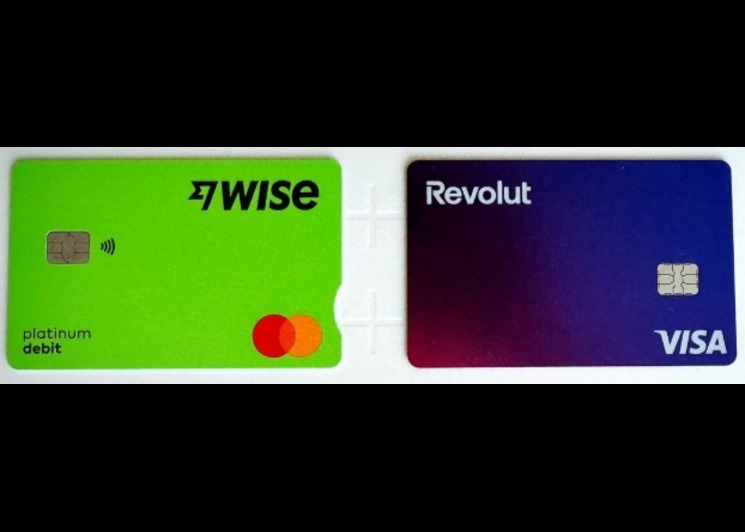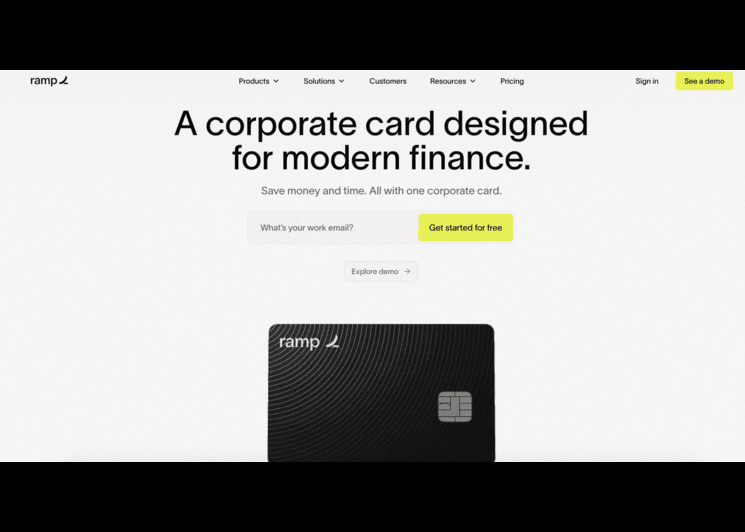Bycard vs Revolut: Which Card is the Best Choice
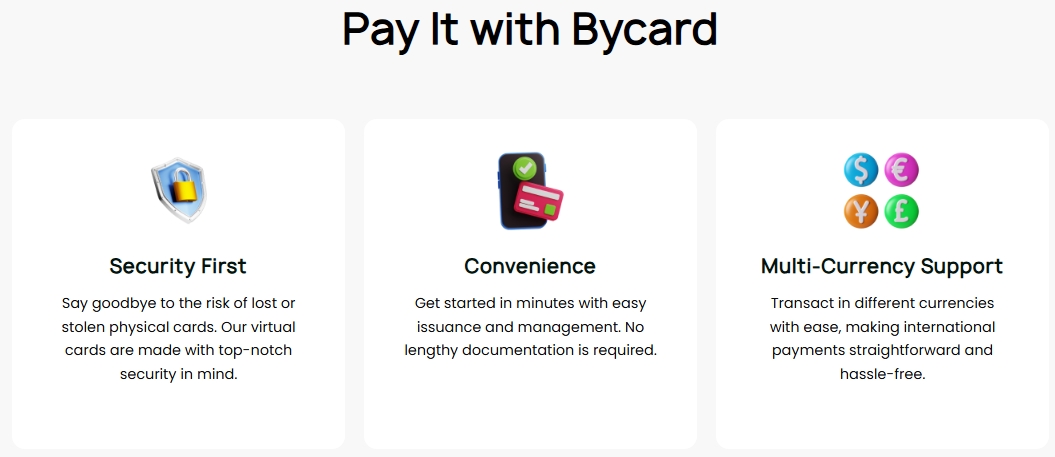
Picking the wrong platform for payment can be stressful and disappointing. A lot is put on hold when payment declines. Refunds and Reconciliation drags. But the right choice fixes all of that. Bycard and Revolut, they are both digital payments used internationally and domestically to transfer funds. Bycard focuses on instant virtual cards and spend control, while Revolut positions itself as a full digital banking and global payment platform. Let’s compare their key differences and how to know the best choice for individuals and businesses.
Bycard at a Glance?
Bycard focuses on instant virtual cards and spend control for modern, online use for both individuals and businesses, used for shopping, ad payments, travelling, etc. Individuals issue cards per need, while Teams issue a card per platform or campaign. The product targets media buyers, subscription-heavy teams, and finance leads who want card-level data. Virtual-first, instant issuance, diversified BINs (vendor claim), card-per-campaign controls, alerting, and exports. Region and funding options depend on account setup.
Core Features
- Instant virtual cards, Visa/Mastercard networks
- Cards for ad campaign/account
- Cryptocurrency payment and conversion
- Merchant lock, spend caps, expiry dates
- Alerts, first-charge and amount-spike notifications
- Clean exports for reconciliation and expense reports
- Team controls, roles, and approvals
- U.S. MSB registration with FinCEN (Bycard’s claim)
Who it’s for
- Individuals, who need to make any type of payment without obstruction.
- Agencies and advertisers who need high approval rates and clean card mapping
- Ops/Finance teams that want tight controls and fast month-end
What is Revolut?
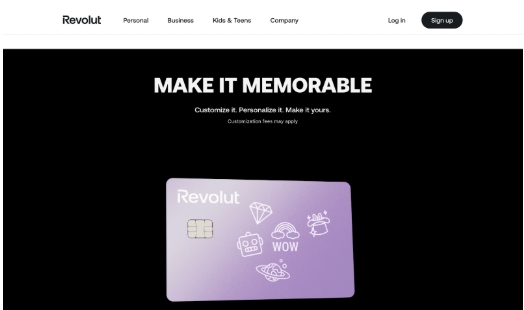
Revolut is a global digital banking platform and global payment platform. It offers multi-currency accounts, physical and virtual cards, FX, budgeting, and business accounts. It serves both consumers and businesses at scale. 50m+ customers, business and personal accounts, cards that work across 150+ currencies for travel and online spend, weekend FX rules by plan, Apple Pay/Google Pay for virtual cards.
Key products
- Savings, investing, payments, and business accounts with spend tools
- Multi-currency accounts and currency exchange
- Physical and virtual cards, including disposable single-use cards
- Apple Pay/Google Pay support for virtual cards
Bycard Vs Revolut: Quick Overview
Users:
Bycard is best for individuals, freelancers, businesses,looking for an instant global payment for online shoppers, travel payments, crypto bill pay but most especially media buyers, agencies, and teams searching for reliable virtual cards for campaign and payment reliability.
Revolut is best for both personal and business segments at large scale, from travel and personal spend to multi-currency business accounts, cards, and tools. Also a great option for travel payments
- For travel FX, wallets, and global acceptance, plus weekend fee logic by plan
- Small businesses with mixed needs start with Revolut Business for banking, FX, and team cards. If campaigns scale, add Bycard per campaign for tighter controls
Funding and top-ups

Revolut
- Bank transfer, card top-ups, and local rails in supported regions
- Fast in-app top-ups; plan-dependent limits and fees apply
Bycard
- Generate Unlimited cards for Transaction
- Wire and Bank transfer, other funding paths depending on region
- Designed to issue and fund multiple cards quickly for all payments
- Wallet: no limit for balance. per deposit, minimum is 100$, maximum is 100K$
- Card: maximum limit of per purchase is around 50K US, and maximum 200K accumulated per year.
Pricing and fees
Revolut
- Tiered business and personal plans; features scale with fee
- Weekend FX fees: Standard 1%, Plus 0.5%, Premium/Metal/Ultra 0%; weekday “fair usage” limits apply by plan
- Additional fees may apply after plan allowances (transfers, ATM, etc.)
- Always check the live fees page for your country and plan
Bycard
- Low International fees charged per card
- Watch FX and funding fees; confirm before large top-ups

Perfect Card for running ads!
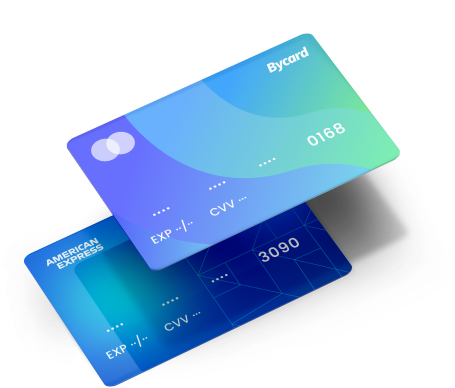
Pros and cons
Bycard: Pros
- Instant virtual cards for campaigns and vendors
- Merchant lock, caps, expiry, and real-time alerts
- Clean reconciliation with card-level logs and tags
- Strong fit for ad platforms and subscription control
Bycard:Cons
- Virtual-first, not a full retail bank
- Region and funding options vary by account
Revolut: Pros
- Broad global footprint and feature set (personal + business)
- Virtual + physical cards, wallet support, multi-currency FX
- Tiered plans with expense tools and team controls
Revolut: Cons
- Weekend FX fees for lower-tier plans; fair-usage limits
- Broad feature set may feel heavy if you only need campaign-level controls
Side-by-side summary
Why Bycard is the Best Choice
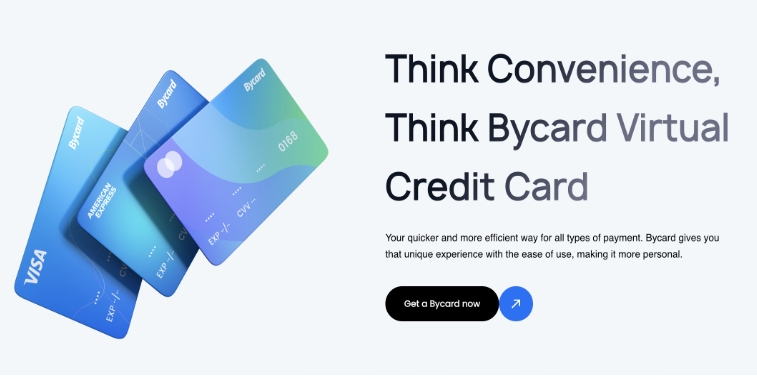
- Ads card for Campaigns: Map every charge to the right account or client, while keeping global payments stable and under control with virtual cards.
- Merchant-locked safety: Keep spend on-platform and block off-policy charges.
- Virtual Wallet: Top your card with your desired currency from your wallet
- Real-time alerts: Catch first-charge anomalies, spikes, and declines.
- Clean exports: Reconcile weekly in minutes, not hours.
- Unlimited Cards issuance: Access cards for your particular needs.
Conclusion
Both Bycard and Revolut stand out as powerful tools in the global payment space, but they serve different priorities. Bycard appeals to businesses and individuals who want low-cost virtual cards with straightforward pricing and control over international transactions. Revolut, by contrast, offers a wider financial ecosystem with tiered plans, lifestyle perks, and flexible tools for both personal and business users, but often with more conditions and varying fees.

